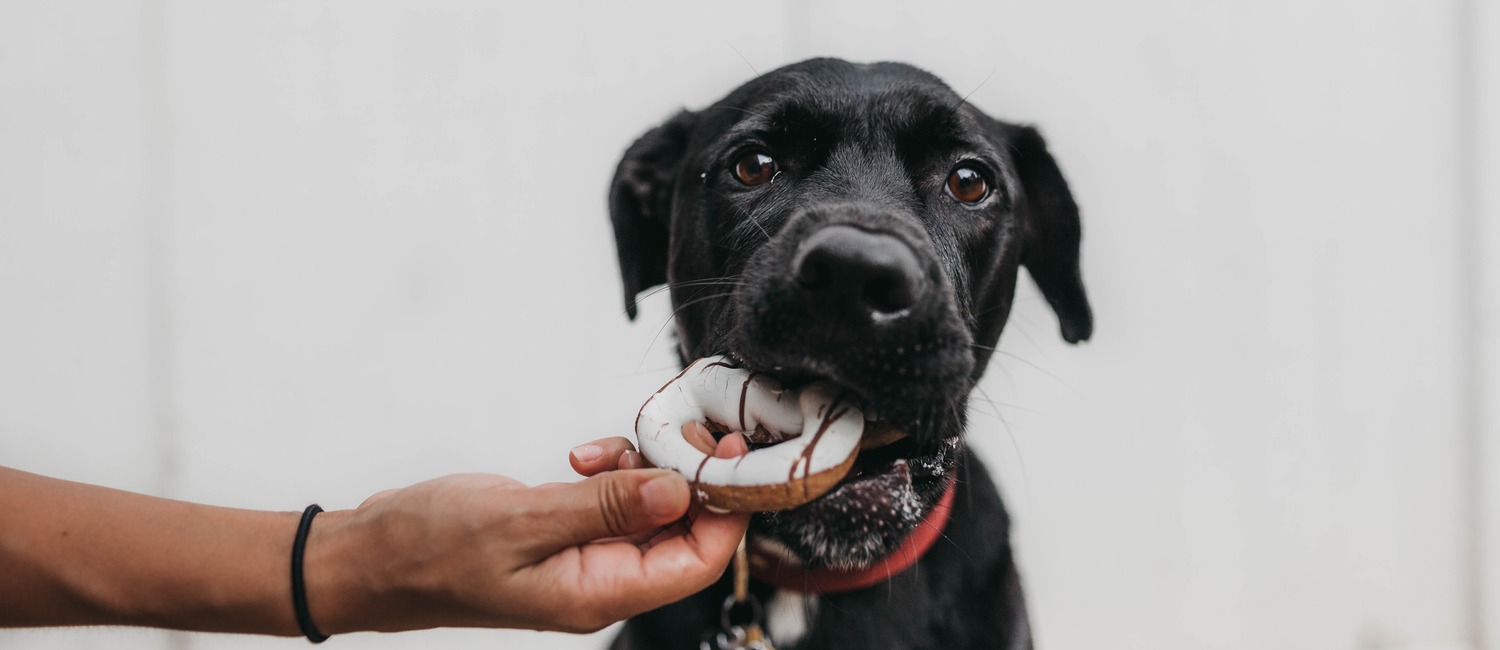
83 Healthy & Harmful Foods For Dogs You Need to Remember
For many of us, the love we have for our dogs is as deep as the love we have for the people in our lives. They become an integral part of our families from the moment we bring them home, and we often treat them like a young child. However, as with any other family members, we need to look out for their best interests. Sometimes, this means not giving them what they want.
Now, you may say "I never give in to my dog!" and this might be true. And if you’re a pet sitter, you may have been given strict guidelines on what your new canine companion can and can not eat. But sometimes it's unavoidable! Dogs often end up eating something we don't want them to, despite our best efforts. And on top of that, there may be times where that puppy dog pout causes you to give in, and quite literally throw your dog (a potentially unhealthy) bone.
It’s important to remember that as much as we love to treat dogs like humans when it comes to food, there are differences between what humans and canines can digest. Whether you're giving your dog the leftovers off your plate, offering them a special treat, or prying food out of their mouths from the trash can at the park, both dog owner and pet sitter alike should know the basics about giving human food to dogs.
Learning what foods your dog can and can't eat will go a long way in helping ensure your furry friends keep the pep in their step, and never run into any health issues down the road.
So, What Can Dogs Eat?
Many human foods are perfectly safe for your dog to consume. These can be given as treats, used as alternatives to their regular meals, or offered straight from your plate if you feel so obliged!
Meat
- Salmon
- Chicken
- Pork
- Turkey
- Beef
Tuna
Fruit
- Blueberries
- Pineapple
- Watermelon
- Blackberries
- Apples
- Mango
- Bananas
- Strawberries
- Oranges
- Pumpkin
- Pears
Raspberries
Veggies
- Carrots
- Corn
- Green peas
- Broccoli
- Pickles
- Sweet potatoes
- Mushrooms
- Potatoes
- Celery
- Green beans
Cucumber
Other
- Peanut butter
- Eggs
- Popcorn
- Bread
- Oatmeal
- Rice
- Quinoa
Yogurt
But More Importantly, What Can’t Dogs Eat?
Though the list of canine-approved foods is quite extensive, there are also some things that your dog shouldn’t eat. According to the ASPCA, these foods are dangerous for many reasons. Among these reasons include being a choking hazard, causing significant digestion issues, or being outright poisonous for your fuzzy friend.
See below for a full list of dangerous foods for your dog:
Meat
- Poultry bones
- Fish bones
- Bacon
Pepperoni
Fruit
- Grapes
- Lemons
- Limes
- Citrus fruit stems, leaves, and peels
- Pomegranate
Grapefruit
Veggies
- Onions
- Avocados
- Garlic
- Chives
Mint
Other
- Chocolate
- Raisins
- Tofu
- Macadamia nuts
- Cinnamon
- Raw eggs
- Almonds
- Caffeine
- Xylitol (an ingredient found in sugar substitutes)
- Alcohol
- Pecans
- Nutmeg
Raw yeast dough
What Foods Should You Limit For Your Dog?
There are also foods your dog can eat that may require close monitoring to ensure no issues arise. The following list of foods are ones that are usually safe for dogs but are better given in small quantities. Otherwise, they could have some serious side effects that both dogs and owners would rather avoid.
Meat
- Bologna
Shrimp
Fruit
- Cherries
- Coconut
Kiwi
Veggies
- Tomatoes
- Kale
Spinach
Other
- Salt
- Cheese
- Cashews
- Cottage cheese
- Honey
- Marshmallows
- Milk
- Chickpeas
- Peanuts
Ice Cream
Conclusion
Dogs deserve the best. Whether they’re a part of your family or a furry friend you’re taking care of through a pet sitting service like PetSitter.com, what you feed them matters. When it comes to giving them human food, make sure you always know what’s safe, before it’s too late. If you ever find yourself in a situation where your dog has eaten something you didn’t give them, knowing what category it falls under can help ensure you know how to respond.
Got anything to add to the list? Does your dog have a favourite food? Let us know in the comments!
Please keep in mind that the foods listed in this article do not represent a complete list of all safe or unsafe foods for dogs. If you’re ever unsure about what food to give your dog or think your dog may have eaten something that could harm them, please contact your vet immediately or call the ASPCA Animal Poison Control Center at 888-426-4435* for more information.
*a fee may apply for the use of the ASPCA Animal Poison Control Center hotline.